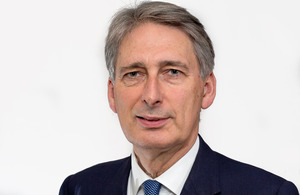The future of Afghanistan
Defence Secretary Philip Hammond has today responded to points made in a House of Commons Defence Select Committee report on Afghanistan.

Defence Secretary Philip Hammond
The report focuses on the planned withdrawal of combat troops by the end of 2014 and the transfer of responsibility for security to the Afghan National Security Forces.
It also raises concerns that Afghan forces may lack ‘enablers’ like helicopter support and medical care after the drawdown of international forces and calls for the start of an Afghan-led peace process, including the Taliban, before the UK and other forces end operations.
Philip Hammond said:
I welcome the publication of this report, which shares our vision of an Afghanistan that can maintain its own security and never again be a safe haven for international terrorism. The fact that Afghan security forces are now leading on more than 80% of all security operations across the country shows we are well on the way to achieving that aim.
As part of our enduring commitment to Afghanistan we will continue to support the development of Afghan forces through mentoring and training at the Afghan National Army Officer’s Academy near Kabul. That is in addition to our £70 million commitment to the international fund to sustain the Afghan security forces after 2014.
The UK is dedicated to helping the Afghan Government make progress towards a sustainable political settlement and a stable regional environment, and to help the Afghan people build a viable Afghan state.
We will continue to support governance and development in Afghanistan through the next decade - with £178 million per year of development aid agreed until 2017 - to ensure that the progress made will not be lost.
Speaking on BBC Radio 4’s Today programme this morning, the Defence Secretary said:
Let’s be clear what we have achieved. We have essentially seen the removal of international terrorists able to use Afghanistan as a base (from which to conduct attacks) and we have created a 350,000-strong Afghan National Security Forces from scratch.
Eighty per cent of operations are now led by the Afghans, planned by the Afghans and executed by the Afghans; increasingly the ISAF (International Security Assistance Force) forces in the country are in the barracks as a back-up reserve, with the Afghans actually doing the fighting on the ground. This is very significant progress and we shouldn’t underplay it.
The Defence Secretary later emphasised that:
Turning Afghanistan from a piece of completely ungoverned space with no ability of the government in Kabul to project its authority at all, no security forces to speak of, utterly dependent on short-term Western combat interventions, we’ve now got a situation where international forces are able to draw down, where the Afghan security forces are delivering working security on the ground, and there is an elected government in Kabul with a presidential election due next year which will elect a new one with a different president. I think that’s progress.
On the subject of the possibility of Afghanistan descending into civil war post-2014, the Defence Secretary said:
The report says that they have been offered a range of views about the outcome, from what they describe as the ‘overly optimistic’ to the prospect of degeneration into civil war. And I completely accept that nobody can say with certainty what the future for Afghanistan will be, but what I can say is that the future of Afghanistan will have to be determined by the Afghan people.